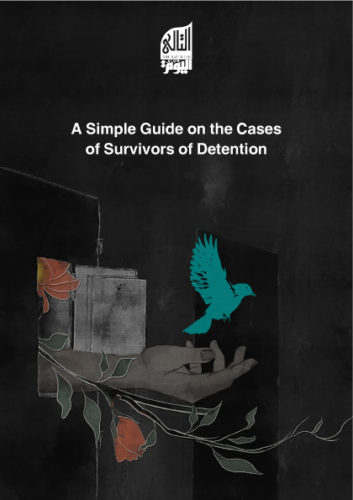
You can read the guide in Arabic – English – Kurdish
Arbitrary detention without any legal arrest warrants is one of the most significant methods the Syrian government has resorted to in suppressing popular protests in Syria since March 2011. These violations have affected hundreds of thousands of Syrians, and were practiced by the security services and militias affiliated with the Syrian government to terrorize Syrians.
Arrests in Syria were carried out without judicial warrants, and detainees went absent without any information, and were denied communication with their families and lawyers. Syrian authorities deliberately denied carrying out arbitrary arrests, and therefore, most detainees were considered as forcibly disappeared. Arbitrary arrests contributed to the absence of a centralized list of the names of the missing in Syria.
There are conflicting numbers about the forcibly disappeared, as it was sometimes claimed that there were 300,000 forcibly disappeared individuals, while other agencies provided lesser numbers. United Nations numbers indicate more than 100,000 detainees.
Detainees in Syrian prisons are subjected to various types of torture, cruel, inhumane and degrading treatment and sexual violence by the prison authorities without any local or international oversight or protection. Caesar’s photos may be the best evidence of this.
The issue of arrests in Syria has not been seriously addressed at the international level — whether through negotiations or through binding international resolutions, and efforts in this regard have not made any progress in seeking to release political detainees or protect them so far.
This guide was prepared by The Day After (TDA), in collaboration with groups of female and male survivors of detention, with aim of shedding light on the most important psychological and social consequences of detention, and ways to deal with it, in addition to mentioning the most important relevant laws as a guide, to share information publicly.
